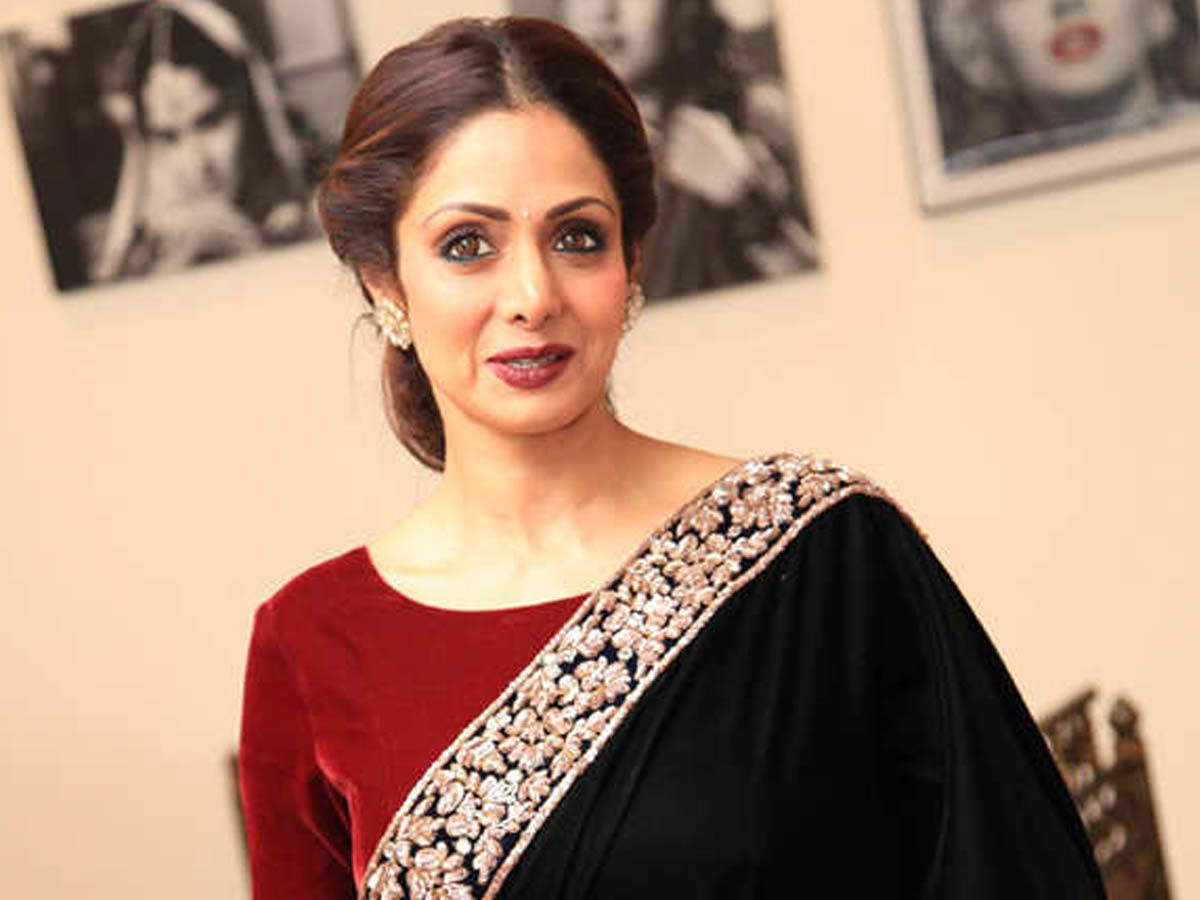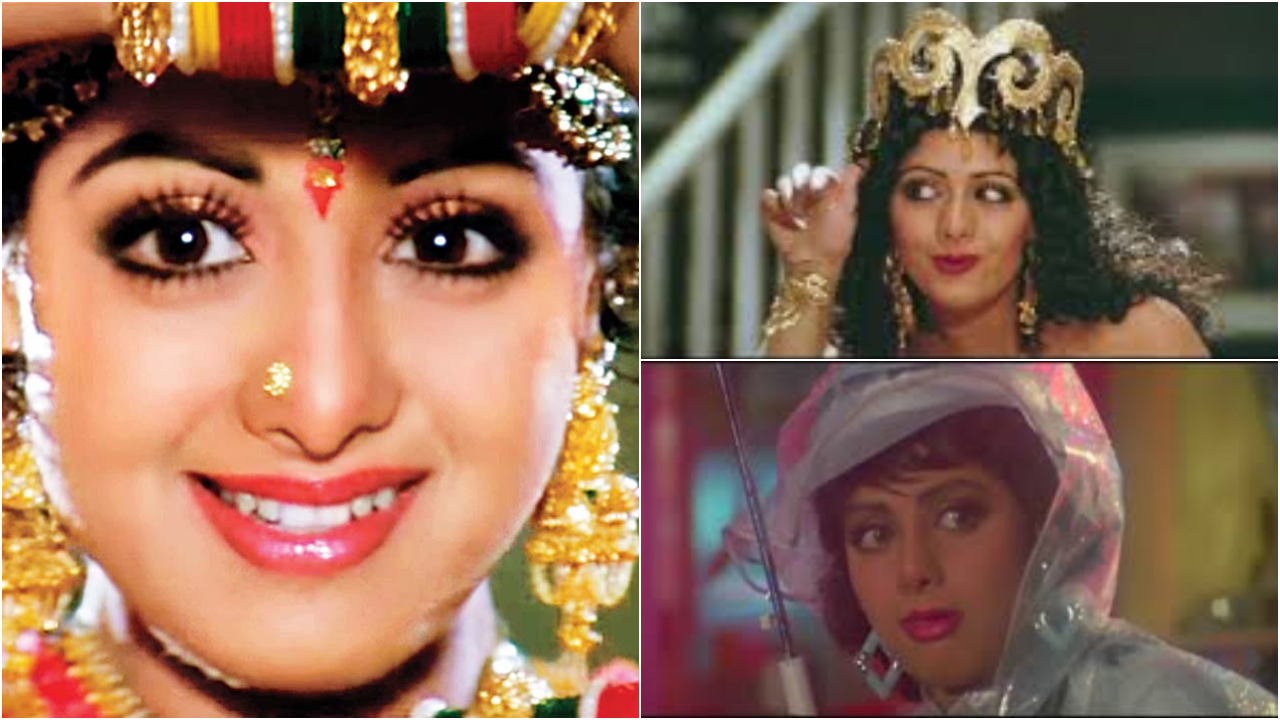Sridevi, A Celestial Enigma of Bollywood’s Galaxy, Turning 60 Today
In the mesmerizing constellation of Bollywood stars, one name gleams with an enigmatic allure that transcends time, and it's no other than Sridevi. Had fate not dealt its tragic hand in 2018, the iconic actress would have turned 60 today, leaving us to ponder the marvels she might have woven on the silver screen. From her inception into cinema at the tender age of four, Sridevi's luminous journey painted an indelible mark on the heart of Indian cinema. Her status as Bollywood's first female superstar remains untouched, her charisma echoing through the frames of over 280 films. Beyond the realms of her existence, her aura continues to captivate hearts, leaving filmmakers, critics, and fans spellbound.

Enigmatic Brilliance, Celebrating Sridevi, Bollywood’s Timeless Star
In the galaxy of stars that light up Bollywood’s sky, there exists an enigma named Sridevi, a luminary who would have gracefully stepped into her sixtieth year today.
Alas, the cruel hand of sudden demise swept her away in 2018, forever shrouding her in the mystique of “what could have been.”
An artist since the tender age of four, she traversed the silver screen, etching her name as the first female superstar of Bollywood; a celluloid goddess, an ethereal presence, she continues to cast her spell long after her earthly form has faded.
In the frames of 280-odd films, her charm endures, echoing her unparalleled charisma; biographies attempt to unravel her riddle, to decipher the intricate enigma of Sridevi’s existence in the spotlight.

Sridevi, The Star
Born under the starry sky on August 13, 1963, to a Tamilian father and a Telugu mother, she was christened with a name that dances off the tongue like poetry – Shree Amma Yanger Ayyappan. Sridevi, a name that would soon resonate with the hearts of millions, took her first steps into the world of cinema at an age when most were just learning to walk.
The luminous pages of Amborish Roychoudhury’s book, ‘Sridevi: The South Years,’ unfold her journey through the southern industry, where she laid the foundation for her radiant career in the glitzy world of Bollywood.
Amidst her myriad roles, one stands tall as a testament to her artistry – ‘Sadma.’ Roychoudhury reminds us that in the Southern film industry, such gems were not exceptions but rather the rule for Sridevi.
She ventured forth to conquer nuanced, complex characters as if she had been destined for the silver screen from the moment she first graced it at the age of thirteen in ‘Moondru Mudichu,’ a creation of the legendary K Balachander.
)
Star Studded Journey
In her journey, Sridevi never attended the hallowed halls of an acting school; instead, her mentors were the directors and co-actors who surrounded her, and her education took place within the bustling university that was the film industry.
When queried about her method of acting, she often seemed to grasp at straws, an artist guided by instinct rather than formula.
Was her genius an unconscious amalgamation of all she had absorbed?
As critic Baradwaj Rangan posits, “The film industry was her university.”
Gauri Shinde, the director-writer who breathed life into her cinematic revival with ‘English Vinglish,’ recalls the profound interaction of an actor and her craft.
Sridevi’s intuition was her North Star, but she was equally the vessel of the director’s vision. She surrendered herself to the script in her quiet yet profound way, becoming a canvas onto which the director’s dreams were painted.
‘Sadma’ turned Sridevi into a household name, etching her into the collective memory; those who knew her closely attest that she was not a flashy people’s person; instead, she found solace in the quiet corners, immersed in the world of books.

From English Vinglish To Mom
Adil Hussain, who shared the screen with her in ‘English Vinglish,’ perceives a deeper layer to Sridevi: introverted yet open, her receptivity made her vulnerable, her warmth extending beyond the camera’s gaze.
Then came ‘Mom’ in 2017, her final bow on the cinematic stage; The National Film Award for Best Actress adorned her posthumously, a tribute to her undeniable prowess.
While the film may not have garnered unanimous praise, her performance stood unchallenged, a testament to her extraordinary skill.
Her roles were diverse, and her talent was undeniable. The Padma Shri of 2013 attested to her contribution, and her place in the annals of Indian cinema was firmly secured.
Gauri Shinde’s words resonate, capturing the essence of their meeting, the birth of ‘English Vinglish’: “I did not have Sridevi in mind for ‘English Vinglish,’ but meeting her for the first time, I knew I had found my Shashi. Once the camera rolled, I fell in love with the actress in her.”
Yet, as we grapple with her untimely departure in 2018, one wonders, had we truly witnessed the zenith of her brilliance?
Adil’s answer resounds: “Certainly not.” Her genius was glimpsed, but like a captivating melody that fades too soon, we were left longing for more.
The celluloid frames that Sridevi painted with her presence remain an inspiration, casting a spell on both established stars and rising talents.

She transformed seamlessly, reincarnating as various characters yet retaining the heart of a child.
Her canvas expanded from the misfit to the captivating, from the reticent to the bold. Epithets faltered in capturing her essence; she was a force that transcended labels. Unknowingly, she reshaped the landscape for female actors in a predominantly male industry, etching her name as a true game-changer.
As the world celebrates her 60th birth anniversary, let us paraphrase Lee Strasberg’s wisdom: “An actor’s tribute is in their work.”; and Sridevi’s legacy, woven into the very fabric of Indian cinema, continues to shine brightly, a beacon of inspiration for generations to come.
The future will undoubtedly pay homage to the actor she was, mourning the loss of the roles she would have masterfully portrayed.




